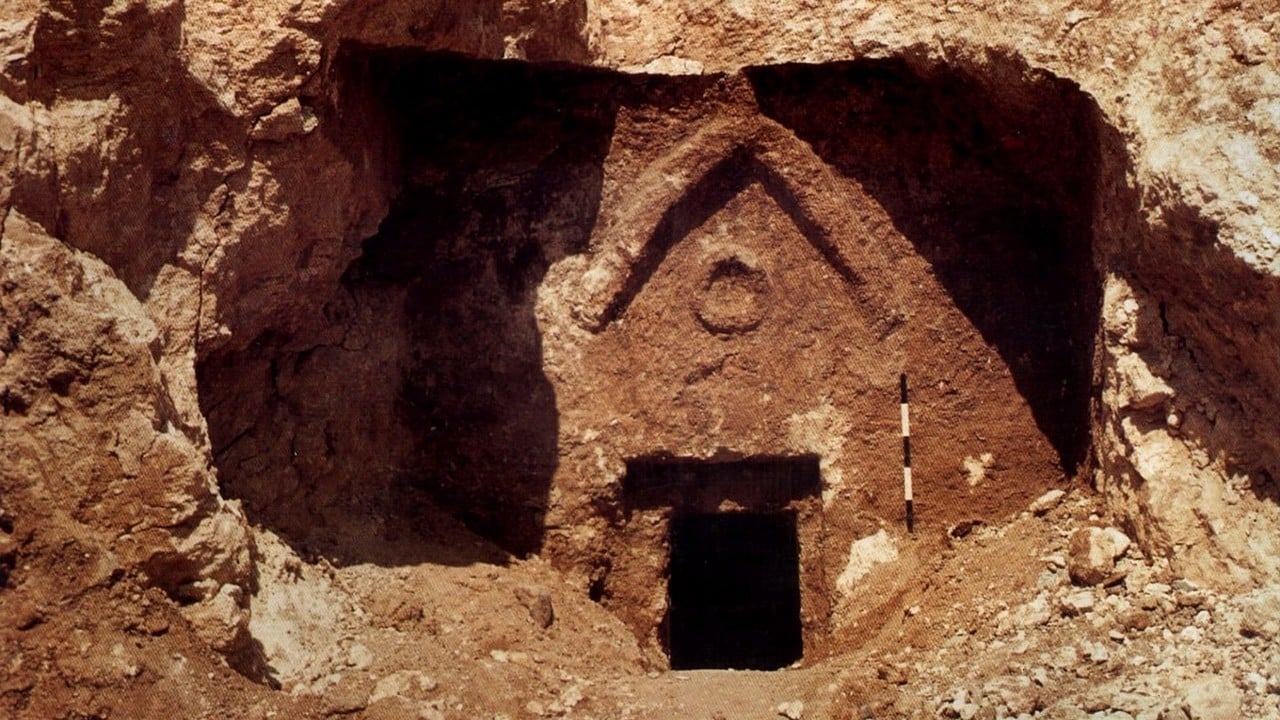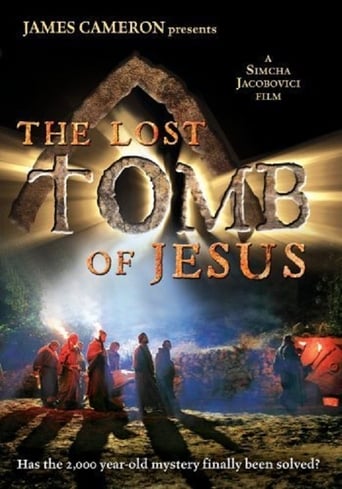

Lost Tomb of Jesus, The (2007) *** 1/2 (out of 4) This controversial documentary claims that a buried family tomb that was discovered in Jerusalem is in fact the tomb of Jesus and his relatives. That's pretty much all you have to say to start up a heated debate among people who either don't want to believe this is the tomb fearing that it could cause people to question their faith or the other side wanting to use it as proof that there entire faith is false. Look, I grew up in a church as my grandfather was a preacher and I've heard from countless different religions in my lifetime. At the same time I tend to look at myself as rather open-minded so I can accept science, technology and new findings. I'm not going to sit here and take a side in this heated debate because I'm not an expert on any of the subjects covered here. I'm also not one that's going to get offended by anyone's point of view even if it goes against mine. What I can say about THE LOST TOMB OF Jesus is that it's a very entertaining documentary that kept me glued to my seat as the story was unfolding up to its conclusion. I think the film works well as a "film" because they tell the story in such a way that you really feel as if you're watching some mystery or adventure film unfold. The movie manages to contain some nice drama and especially towards the end when the main goal is trying to figure out where the lost tombs are and to see if they can dig up any more evidence. Again, depending on your point of view you might not like what they discover or you might even agree with it but feel that there weren't enough experts giving the testimony. Whatever way you see it, the film at least manages to be very entertaining, which was the most important thing for me.
... View MoreThis film is very interesting, but loads of big questions are not addressed, and I agree more work should be done. 1) Why was so little effort made to investigate this find fully? 2) Why were dna tests not done on the 'James' ossuary, the 'Mary' ossuary, the ' Joses ' ossuary, and the 'Judah' ossuary? Surely these would have been hugely relevant? 3) Thestatistical analysis of the cluster of names was nearly non-existent, just a couple of comments really. This is unforgivable, as the names are the essence of the story. Any school student could present a better analysis. Did the filmmaker 'dumb it down' for the American market? Just the combination 'Jesus son of Joseph' together with 'Mary' are hugely significant, even without the questionable 'Mary Magdalene' inscription. You have to bear in mind the small size of the population at that time, and the lack of transport for human bodies, and the laws regarding quick burial. If the mdna had linked Jesus and Mary, this combination of related names would have been extremely rare and significant. If the James mdna was the same, this combination would be statistically extremely convincing. Another point completely missed is that, even if you accept the second interpretation of the 'Mary Magdelene' inscription, ( ie two women, Mariamene and Mara in the same box), these names are significant, as , buried in the same box, they are highly likely to be mother and daughter, and a Mariamene with a daughter Mara points very strongly to Mary Magdalene, because she was known as Mariamene, who is Mara, and these were rarely used names. Like many religious documentaries, this film is both interesting and frustrating at the same time.====== ====== ======= ======= ======== ======== ========= ======= Having had a second look at this, I think I can answer one of my questions. I was originally amazed at how little priority was given to this investigation at the time. ( Bearing in mind that more than 2000 million people base their religious beliefs on this man ) . But in retrospect, you have to ask, who would want this find to be confirmed as the real remains of Jesus and family? Not the Israeli government, it would have the potential to stir up hatred in the Christian world. And not the Christian establishment, they would be facing having their position and faith undermined. So the best thing for both parties would be to keep it fairly quiet, and that is what seems to have happened.
... View MoreThe theatrics and the drama included in the movie is fantastic, but the facts and the research is far from solid. When quoting Dr. Bovon, where the documentary tries to establish a connection to Mary Magdalene from Mariamene, Dr. Bovon later clarifies it should be used for literary purposes (ie: fables of that time) not for a historical figure. In fact he states, he does NOT believe the Mariamene ossuary in Talpiot is Mary Magdalene. He further comments on his public letter, that he was not informed that his words would be used for this documentary but rather for information regarding Acts of Philip (a literary work in the 4th century).So what we have here is a director that took one clip for a 4th century Acts of Philip fantasy and used it specifically to support a 1st century ossuary inscription. A very sad stretch and Dr. Bovon calls the Jesus/Mary Magdalene connection as "science fiction" -- as this documentary should be rightly labeled.
... View MoreThis glorified discovery channel documentary, part biblical study, part treasure hunt, all misappropriated, might have sat well in it's television origins but falls flat as a feature film. Right from first glance of it's cheesy looking cover art, one may cast doubts upon the integrity behind this serious subject, shown on front case relegating the search for Jesus's tomb to a generic action font that looks more National Treasure or Tomb Raider then any informed debate and examination of the historical burial site should. Such is the underhanded way in which the entire proceedings revolve.More curious child then worthy researcher, Simcha Jacobovici's explorations come across as self-indulgent while his research comes across as manipulative. For all the fascinating revelations this filmmaker tries to impart on his viewers through supposed evidence, a flood of repetitious statements reiterating the same research and findings over and over proves The Lost Tomb of Jesus has very little information to back up the bloated, albeit entrancing claims. What this amounts to is a very frustrating attempt to beat the audience over the head with the same small factual evidence in support of this tomb's authenticity, which ironically detracts from it. While tirelessly linking together many of these mini-coffins found together to support the Jesus of Nazareth theory, this research forsakes a well-rounded approach to continuously pursue this romanticized archeologist's singular obsession. There may be some impressive factual data which helps shed some light on many traditional dogmatic Christian-held beliefs, but essentially the shady nature of this project made it come across as merely an exploitation piece, financed at a time when The Da Vinci Code was all the rage.In the end, the cheesy cover art was right. Despite my appreciation for documentary form, The Lost Tomb of Jesus takes an always interesting topic and turns it into overlong and unvaried geriatric adventure hunt, substituting any relevance and sacredness for the uninspired motivations behind this team. By the time these tomb raiders have finished their explorations, reluctantly having to stop research because of social demands, viewers are left with the sense the director was insistent on forging this mystery whether it was there to begin with or not. There are a few genuinely potent moments where the halls of history come marching through this documentary in unassuming ways, but all the decoding, exploring, and theorizing in the world still left this misguided vanity piece in an uneasy void of apathetic response.
... View More